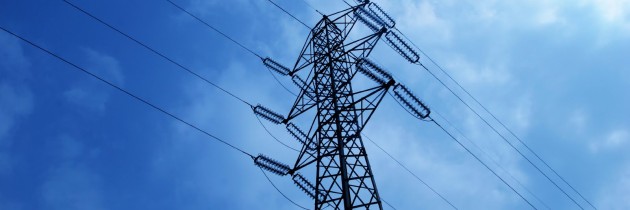EU Energy Crisis
Europe is beset by rising energy prices, driven by the increasing competitiveness of shale production in the US, political commitments to lower emissions and an over-reliance on Russia in the wake of unrest in the Middle East and North Africa. Britain’s Big Six, the six dominant energy companies, face accusations of overcharging, but they in turn claim that prohibitive emissions targets and governmental “green levies” are to blame for the price increase. While the US is benefiting from a shale gas boom that is predicted to give it an edge over both the EU and China for the next two decades, fracking is struggling to take off in Europe due to high costs, geological difficulties and public ambivalence to the environmentally destructive production methods. European politicians are considering abandoning the 2030 renewable energy targets in light of these high costs.
These articles analyse the causes of and possible solutions to Europe’s energy crisis.
From the FT
- Steel magnate Lakshmi Mittal argues that bureaucracy and emissions targets are seriously damaging the competitiveness of European manufacturing.
- With electricity costs 50 per cent lower in the US and gas prices close to four times lower, European industry is moving production across the Atlantic. Over 58 per cent of business leaders declare themselves “pessimistic” over the chances that Europe will be cost-competitive in even three years.
- Some of Europe’s top businessmen are calling for a unified political approach to issues of trade, finance, and economy, warning that if there is not a common plan then the continent must “face global irrelevance”.
“Europe has 500m people compared with 300m in the US. It needs to play as one single player in economic terms, particularly vis-a-vis the Brics… The risk is that we increasingly try to find local solutions for local problems. We need to see macroeconomic and financial discipline.” — Gerard Kleisterlee, Chief Executive of Philips and Vice-Chairman of the European Roundtable of Industrialists.
- Nick Butler argues that the civil war in Syria is strengthening the argument for shale gas as perennial unrest in the Middle East drives consumers away in search of stable markets closer to home. “The shale gas industry could not have a better recruiting sergeant than President Bashar al-Assad.”
- German economy minister Sigmar Gabriel believes that the transition to renewable energy sources has strained the economy to its limit, and argues for the use of the cheapest clean energy sources to keep emissions targets in sight. Germany has been “financing the learning curve” on renewable energy in Europe, said Mr Gabriel, but states that “The costs of the learning curve must be bearable” in the wake of complaints by domestic producers that they are being crippled by a prioritisation of solar and wind.
- Misha Glenny argues that fracking is a second chance for the UK and one that should be taken without hesitation. He advises that Britain take a leaf out of Norway’s book and save the revenues of shale gas, rather than wasting money “in a binge of tax cuts and government spending” as was the case with North Sea oil revenues in the 1980s.
Best of the Rest
- Europe prides itself on its commitments to low-carbon energy, but new forms of production are crippling established power companies, writes The Economist. Germany’s largest energy producer, E.ON, has seen its income from conventional energy generation fall by a third since 2010. The loss of investment power from their decline and the unreliable nature of solar and wind production could cause serious issues for European energy grids and the European economy.
- Reuters reports on a European Commission decision to allow the development of shale gas in the EU on certain conditions, such as the disclosure of all chemicals used in the process and “stringent measures” to prevent contamination of the water supply. The document states that shale gas could be used to avoid reliance on coal and on Russian energy supplies.
- Jon Snow at Channel 4 news writes of the pressing need to abandon all commonly agreed sustainable energy targets. Reliance on Russian energy is increasing and Europe is suffering from consuming some of the most expensive gas in the world.
- Stanley Reed writes in the New York Times that Europe has become a victim to its own success. The progress made in renewable energy production is astonishing, with over a fifth of European energy created by wind and solar power in 2012, up from 13 per cent just ten years before. Yet the expense has become prohibitive, and is driving industry to North America and the Far East.
- The shale boom in the US could never be replicated in the UK, writes Paul Stevens in The Guardian. Complex geology would hamper initial efforts, while the gas itself would most likely be sold on the continent were it would fetch a higher price – producing few benefits for British consumers.
Fonte: ft.com



